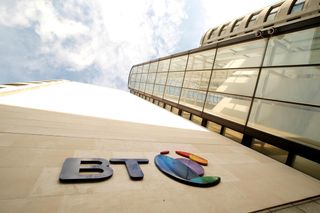TalkTalk slams Ofcom's decision to leave BT in control of Openreach
Ofcom outlines tougher measures to hold BT to account, but maintains status quo

TalkTalk's CEO has blasted Ofcom's decision today not to separate BT from its fibre network arm, Openreach, but others have welcomed the promise of tougher oversight.
BT had faced full separation from Openreach in Ofcom's first review of the communications market in 10 years, but Ofcom instead opted to strengthen existing measures.
The telco must open up its network to its rivals, the regulator has ruled, though BT has said it will only do so if those competitors "invest very large sums" in expanding the fibre roll out.
CCS analyst Paolo Pescatore said that while other telcos will be satisfied with the ruling, BT "will breathe a sigh of relief".
"Openreach contributes significant profits to the company and being forced to open up its network will spur rivals and could drive greater competition," he added.
"Going forward we believe there will be a clear focus on fibre for the UK's broadband future driving competition in this area."
But TalkTalk CEO Dido Harding accused Ofcom of pulling its punches.
Get the ITPro. daily newsletter
Receive our latest news, industry updates, featured resources and more. Sign up today to receive our FREE report on AI cyber crime & security - newly updated for 2024.
She said: "Ofcom has done well in identifying many of the worst problems, including recognising, finally, that BT's control of Openreach creates a fundamental conflict of interest which hurts customers.
"But having accepted all this, Ofcom has produced 100 pages of consultation with little concrete action behind it. The risk is that we end up with 10 more years of debate and delays, rather than facing up to the problems and delivering improvements for frustrated customers now."
Ofcom had come under huge pressure from rivals such as Sky, TalkTalk and Vodafone to split BT and Openreach, which it had initially separated in a market review 10 years ago.
Instead, it today chose to force BT to create a digital map' of Openreach's ducts and tunnels, so that competitors can use the network to run their own fibre services through.
The regulator also found that "Openreach still has an incentive to make decisions in the interests of BT, rather than BT's competitors".
As a result, Ofcom will overhaul Openreach's structure to make it more independent from BT, by introducing transparency on how costs are allocated between the two organisations and letting it take its own decisions on budget, investment and strategy.
It may even ringfence the division from BT when it provides detailed proposals later this year, reserving the right to spin it off into a separate organisation "if necessary".
However, such measures would require EU approval.
BT's group director of regulatory affairs, Mark Schumer, told IT Pro: "We're already heavily regulated so that we can't [be biased against rivals]. We now need to look in detail at Ofcom's review, and what we can do there to give people confidence."
Ofcom will also introduce tougher measures to force Openreach to repair faults and install new lines more quickly, and raise minimum standards on how often faults can occur.
A BT spokeswoman said: "Ofcom have today explained why breaking up BT would not lead to better service or more investment and that structural separation would be a last resort.
"We are happy to let other companies use our ducts and poles if they are genuinely keen to invest very large sums as we have done. Our ducts and poles have been open to competitors since 2009 but there has been little very interest to date. We will see if that now changes.
"We are keen to understand and address Ofcom's concerns so we will review their paper in detail. A great deal of what they are proposing is already in place and we are open to discussions about how the current rules can be amended and updated."
CCS Insight's Pescatore said: "All providers will now be claiming victory. BT's rivals have mounted enough pressure to raise concerns about how competing companies gain access to a shared infrastructure, and BT has acknowledged some of its shortcomings and has pledged to address them.
"Rivals will be delighted that Ofcom is calling for more independence of Openreach from BT with on overhaul of its governance, but will require EU approval which is no easy feat."
Cable.co.uk telecom expert, Dan Howdle, added that the review stops short of addressing broadband issues, with BT the sole firm delivering internet access to 95 per cent of the UK by 2017.
"With Openreach currently in the midst of its BDUK superfast broadband rollout the decision should be seen as one of least disruption. It is, perhaps, a case of poor timing winning out over common sense," he said.




